10 Home Remedies For Thinning Hair + Prevention Tips
Say 'goodbye' to thinning hair with simple ingredients from your kitchen.
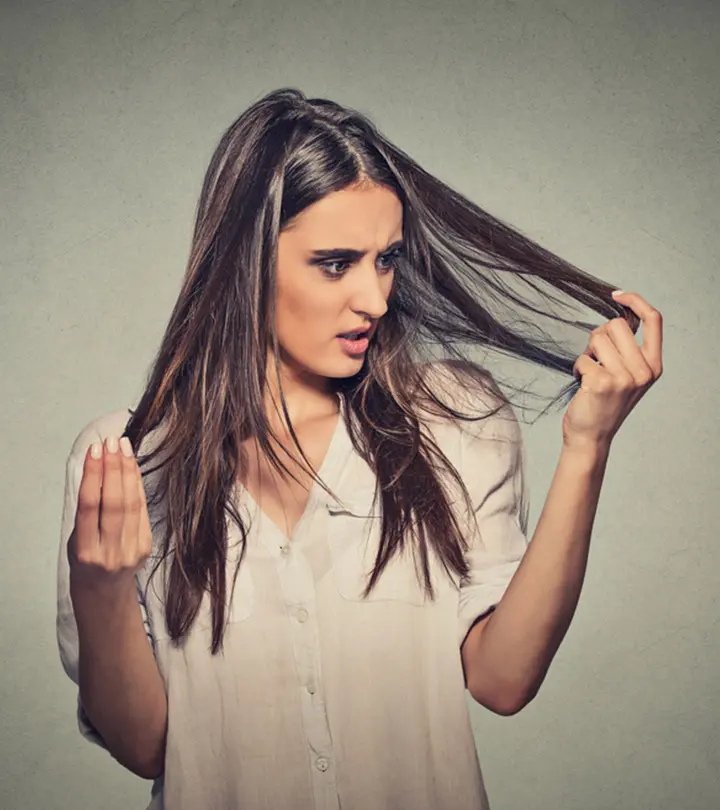
Image: Shutterstock
Nowadays, your hair has to fight with so many things out there to stay healthy and thick. Stress, pollution, and hormonal changes contribute to your hair thinning at an alarming rate. Don’t give up just yet because a few home remedies for thinning hair can do just the trick.
Your hair thinning could be a sign of a poor diet, allergies, changes in hormones, poor lifestyle choices, or an underlying medical condition. While various medical treatments treat hair loss quickly, a few ingredients from the pantry can effectively treat your problem and give you strong and healthy hair in the long run. In this article, we look at a few home remedies and tips you can follow to reduce thinning hair. Check them out below!
In This Article
Home Remedies For Thinning Hair
Hair thinning is a common phenomenon in this stressful era. However, it is vital to spot hair thinning on time and find solutions to rectify it. You may check out some home remedies given below for desirable results.
1. Aloe Vera
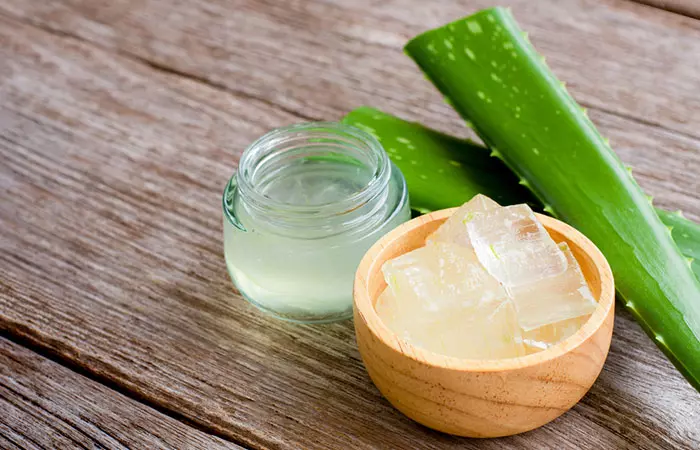
Aloe vera contains proteolytic enzymes that help heal and repair dead skin cells (1). This could help stimulate hair growth from dormant hair follicles, thus increasing hair volume (2). Daily consumption of aloe vera juice is also recommended to help promote hair growth.
You Will Need
- 2 teaspoons aloe vera gel
Prep Time
- 5 minutes
Processing Time
30 minutes
Process
- Extract about 2 teaspoons of gel from an aloe vera leaf. You can do this by slicing the leaf with a knife and simply scooping the gel out.
- Blend the gel so that it gets to a smooth consistency.
- Start massaging the gel into your scalp with your fingertips.
- After massaging your scalp for about 5 minutes with the gel, leave it on for an additional 25 minutes.
- Rinse it out with warm water.

How Often?
Twice a week.
2. Eggs
Eggs are a rich source of protein and sulfur that stimulate hair growth (3). Frequent protein treatments are crucial for hair shine and thickness.
You Will Need
- 1 whole egg
- 1 tablespoon olive oil
- Shower cap
Prep Time
5 minutes
Processing Time
20 minutes
Process
- In a bowl, combine one egg with one tablespoon of olive oil. Stir until you get a smooth mixture.
- Apply the mixture to your hair and scalp, working it in from the roots to the tips.
- Once your scalp and hair are completely covered in the mixture, leave it on for about 20 minutes.
- Cover your hair with a shower cap during this time to avoid a mess.
- Proceed to wash your hair with shampoo and cool water. Do not use warm water to wash your hair at this point as it can ‘cook’ the egg.
- Finish by conditioning your hair. (You may skip this step if you have oily hair.)
Naznin Azeez, a blogger, shared her experience of preparing a similar hair mask. However, she used egg yolks instead of the whole egg and rinsed the mask simply with plain water. She says, “I washed really well and I felt the olive oil in it didn’t actually make my hair ‘oily’. So I preferred not to use a shampoo (i).” She recommends using the mask once or twice a week and adds, “This mask STINKS. Such a horrid smell. But the result it gives is fantastic and I don’t mind tolerating the smell for that!”
How Often?
1-2 times a week.
3. Avocado
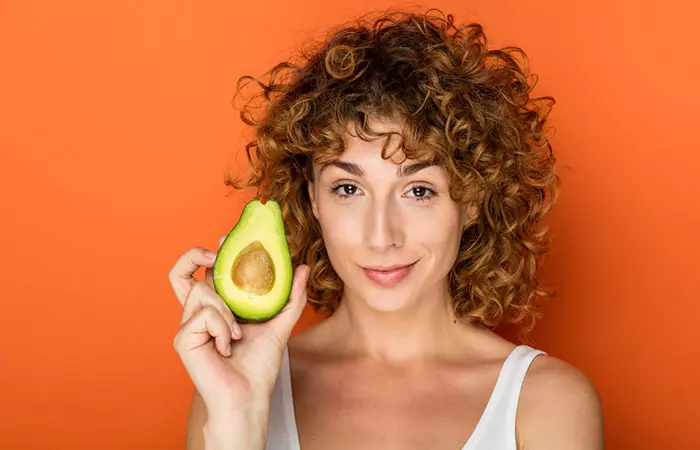
Avocado contains vitamins A, B6, C, and E (4). These nutrients help support healthy hair growth (5). It also contains omega-3 fatty acids and essential amino acids that deeply nourish and condition your hair and follicles (4), (6).
You Will Need
- 1 ripe avocado
- 1 ripe banana
- Shower cap
Prep Time
5 minutes
Processing Time
30 minutes-1 hour
Process
- Mash the avocado and banana in a bowl until you get a smooth, lump-free mixture.
- Apply the mixture to your hair and scalp, working it in from the roots to the tips.
- Once your scalp and hair are completely covered in the mixture, leave it on for about 30 minutes to an hour.
- Cover your hair with a shower cap during this time to avoid a mess.
- Proceed to wash your hair with shampoo and cool water.
- You can skip conditioning as the hair mask will leave your hair feeling soft and smooth.
How Often?
Once a week.
4. Amla
Amla helps in hair strengthening and promotes hair growth (7). It is a powerhouse of antioxidants and `. The high amounts of vitamin C in this pack help boost the collagen levels in your scalp, thus increasing hair growth (8).
You Will Need
- 1 tablespoon amla powder
- 1 tablespoon lime juice
Prep Time
5 minutes
Processing Time
15-20 minutes
Process
- Combine equal parts of amla and lime juice until you get a smooth mixture.
- Apply the mixture to your hair and scalp, working it in from the roots to the tips.
- Once your scalp is covered in the mixture, leave it on until it dries up.
- Proceed to wash your hair with shampoo and cool water.
How Often?
Once a week.
5. Fenugreek Seeds
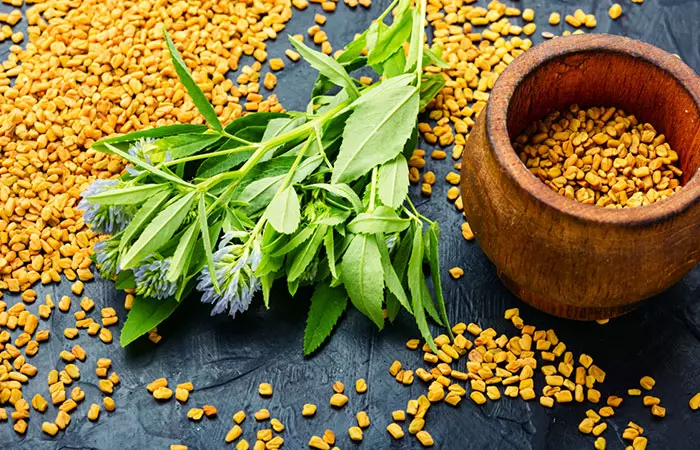
Fenugreek is traditionally used as a remedy for hair growth. Although there is no scientific evidence that fenugreek possesses the ability to induce hair growth, animal studies have found that it can treat dandruff (9).
You Will Need
- 2 tablespoons fenugreek seeds
- 1/2 cup water
Prep Time
8 hours+ 10 minutes
Processing Time
30 minutes
Process
- Soak the fenugreek seeds in half a cup of water and leave it overnight.
- In the morning, blend the seeds with a little bit of the water that it was soaked in until you get a thick, smooth paste.
- Apply the mixture to your hair and scalp, working it in from the roots to the tips.
- Once your scalp and hair are completely covered in the mixture, leave it on for about 30 minutes.
- Proceed to wash your hair with shampoo and cool water.
How Often?
Once a week.
6. Henna Leaves
Henna contains phenolic compounds that combat a number of hair issues like lice and dandruff (10). Such phenolic compounds also have the potential to boost hair growth and combat alopecia areata(11). Along with alopecia treatment, some anecdotal evidence suggests that henna conditions hair and makes it more manageable.
You Will Need
- A bunch of fresh henna leaves
- 1 cup water
- Shower cap
Prep Time
5 minutes
Processing Time
3 hours
Process
- Grind the fresh henna leaves with some water until you get a smooth mixture.
- Apply the mixture to your hair and scalp, working it in from the roots to the tips.
- Once your scalp and hair are completely covered in the mixture, leave it on for about 3 hours.
- Cover your hair with a shower cap during this time to avoid a mess.
- Proceed to wash your hair with shampoo and cool water.
How Often?
Once a month.
7. Coconut Oil
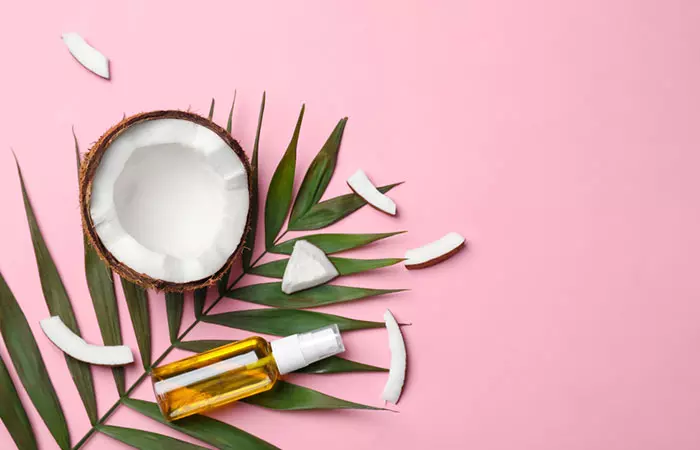
Coconut oil contains compounds that naturally condition your hair and promote growth. It can also be mixed with other oils like castor oil or almond oil. It is rich in essential minerals, lauricacid(a fatty acid), iron, and potassium that prevent hair breakage (12). Lauric acid also has antimicrobial properties that help maintain scalp health and dandruff prevention (13).
You Will Need
2 tablespoons coconut oil
Prep Time
2 minutes
Processing Time
45 minutes
Process
- In a bowl, heat the coconut oil for a couple of seconds until it is slightly warm.
- Use your fingertips to massage the oil into your scalp.
- After massaging your scalp for about 15 minutes, work the oil into the rest of your hair and leave it on for an additional 30 minutes.
- Optionally, you could sleep with the oil in your hair and then wash it off in the morning.
- Rinse the oil out with shampoo.
How Often?
2-3 times a week.
8. Green Tea
Green tea is loaded with antioxidants that help fight off the damaging free radicals, keeping your scalp and hair healthy (14). It also helps stimulate new hair growth (15).
You Will Need
1 cup freshly brewed green tea
Prep Time
10 minutes
Processing Time
1 hour
Process
- Brew a cup of green tea and let it cool.
- Pour the green tea through your hair and give yourself a scalp massage.
- Ensure that your hair is completely saturated with the tea. Leave it on for one hour.
- Rinse your hair with lukewarm water.
How Often?
1-2 times a week.
9. Witch hazel
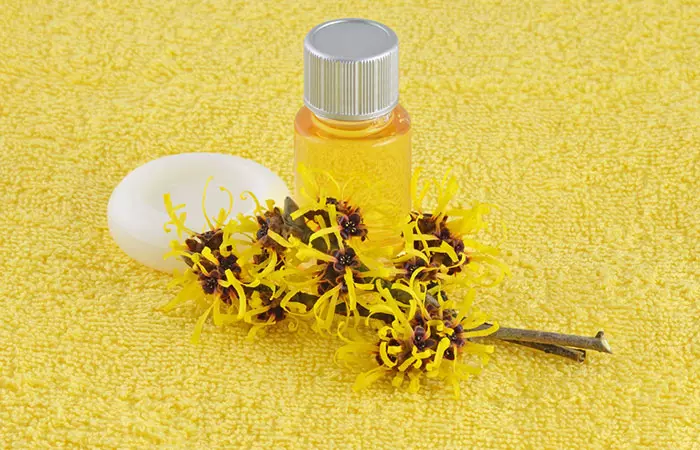
If you have an oily scalp and dandruff, witch hazel can help curb these issues and unclog your pores. It is also a strong antioxidant (16). Thus, it may help fight oxidative stress, which can prevent hair loss. This remedy is perfect for people with oily and combination hair types.
You Will Need
- 2 teaspoon witch hazel
- A cotton pad
Prep Time
1 minute
Processing Time
5 minutes
Process
- Comb out your hair to get rid of any tangles.
- Dab witch hazel onto your scalp using a cotton pad.
- Leave it on for about 15 minutes and then wash your hair as you normally would.
How Often?
2-3 times a week.
 Quick Tip
Quick Tip10. Onion Juice
Onions are known for their excellent hair growth-stimulating properties. They not only curb hair loss and boost hair growth but also stimulate hair regrowth from dormant follicles (17).
You Will Need
1 large onion
Prep Time
5 minutes
Processing Time
15 minutes
Process
- Peel the onion and cut it into small pieces.
- Use a food processor to puree the onion and then extract its juice using a cheesecloth. You can also use the boil method.
- Massage the onion juice onto your scalp for about 5 minutes and then leave it on for an additional 10 minutes.
- Proceed to wash your hair as you normally would.
How Often?
2-3 times a week.
 Quick Tip
Quick TipThese home remedies may help improve your hair health and reduce hair thinning. Simultaneously, you may explore more home remedies for hair growth to get better results. However, understanding the causes behind it may help you figure out the right treatment for it. Scroll down to the next section to find out.
Key Takeaways
- Pollution, stress, genetics can all lead to hair thinning.
- Apply aloe vera gel on the scalp or drink its juice to promote hair growth.
- Drink a cup of green tea to help with hair growth, thanks to its powerful antioxidants.
- Make sure you do not comb damp hair to avoid breakage.
Causes Of Thinning Hair
Here is a list of facts that may cause thinning hair:
- Using hair products containing harsh chemicals.
- Overdoing hair color treatments, relaxers, and perms.
- Wearing tight hairstyles like ponytails.
- Vitamin and mineral deficiencies like riboflavin, folate, selenium, and zinc (18).
- Stress (19).
- Hormonal changes (20).
Most causes of thinning hair can be prevented if you take care of your hair. Scroll down to the next section for some simple ti[s to help prevent thinning hair.
Prevention Tips For Thinning Hair
- Use mild sulfate-free shampoos that are free from harmful chemicals.
- Enrich your diet with proteins and essential nutrients.
- Avoid using heat styling tools.
- Keep a check on your medications. Consult your doctor to find out if any of your medicines can cause hair loss.
- Keep yourself hydrated.
- Massage your hair with essential oils, such as jojoba oil, rosemary oil, lavender oil, and tea tree oil (diluted in a carrier oil).
- Do not comb your hair when it is wet.
- Consult a healthcare professional for a proper diagnosis and customized treatments if you are experiencing prolonged hair thinning.
Infographic: 4 Easy Home Remedies For Thinning Hair
Factors like pollution, hormonal changes, and stress contribute to thinning hair today. The good news is that a few simple ingredients from your kitchen can stimulate hair growth and improve your overall hair health. We have rounded up 4 natural ways of reducing thinning hair in the infographic below! Scroll down to know more!
Some thing wrong with infographic shortcode. please verify shortcode syntaxWhile thinning hair may seem frightening at first, many types of thinning hair can be treated. A little more care and attention could be just what you need to put an end to your hair problems. All of these home remedies for thinning hair are easy to make and take less than 5 minutes to prepare.
If you notice any new hair loss or thinning, or if you develop any bald spots, you should consult a doctor. They can assist you in detecting any underlying medical concerns and provide the necessary medications.
Frequently Asked Questions
What to eat for thicker hair?
Maintaining a healthy and balanced diet is a vital part of ensuring hair thickness. A lot of the time, hair fall is directly related to a vitamin or mineral deficiency. Here’s a list of foods for thinning hair that you should include in your diet to avoid nutrient deficiencies:
- Spinach
- Salmon
- Yogurt
- Cinnamon
- Guava
- Oatmeal
- Eggs
- Oysters
- Lentils
- Liver
- Poultry
- Barley
- Sweet Potato
- Nuts and Seeds
- Shitake Mushrooms
- Halibut
- Bok Choy
What are the best vitamins for treating hair thinning?
Vitamins A, B, C, D, E, and K are all extremely important when it comes to maintaining hair health. Deficiencies in any of these vitamins can have adverse effects on your hair. However, the most important of these vitamins are vitamin C, Niacin (vitamin B3), Panthenol (vitamin B5), and Biotin (vitamin B7) (21). The most commonly taken hair vitamin is Biotin. While supplements can be largely beneficial, it is crucial to consult a health care professional before you start taking any.
How much biotin should I take for hair thinning?
It is recommended to take 700mcg-1000mcg of biotin per day. Not only will biotin improve hair health, but also improve the health of your skin and nails.
Does thinning hair look better short or long?
Short hairstyles like blunt cuts and bobs suit thin hair better because there is less weight pulling it down and flattening it.
How often should you wash thinning hair?
Washing your hair three times a week is enough to keep the scalp clean. However, avoid frequent shampooing and limit it to 1-2 times a week. Your washing schedule also depends on the overall scalp and hair health.
Can thinning hair grow back?
Thinning hair might regrow depending on the causes of the thinning. If it is due to an underlying condition, treating it may help restore your normal hair growth cycle. However, hair regrowth is possible only if the follicles are healthy and intact.
A little extra care might be just the thing you need to kiss your hair fall woes goodbye. All of these home remedies for thinning hair are simple and can be prepared in less than 5 minutes. Do you know of any other ways how to fix thin hair naturally? Tell us what worked for you in the comments section below.
Illustration: Home Remedies And Prevention Tips To Treat Thinning Hair
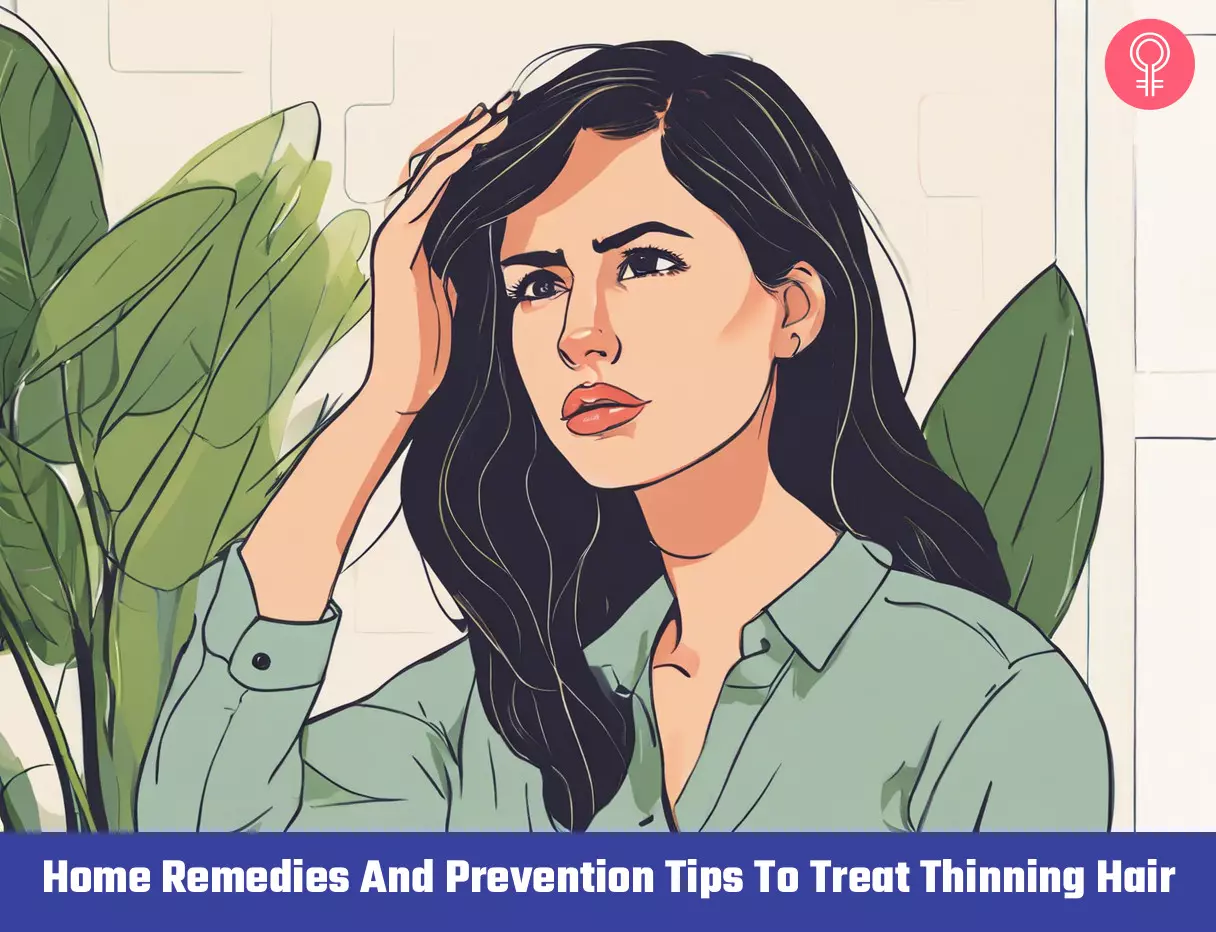
Image: Stable Diffusion/StyleCraze Design Team
Transform thin hair with simple yet effective home remedies. Say goodbye to hair worries with 4 nourishing ingredients and unlock luscious locks with some natural home remedies given in the video below. Watch now and reclaim your confidence.
Personal Experience: Source
StyleCraze's articles are interwoven with authentic personal narratives that provide depth and resonance to our content. Below are the sources of the personal accounts referenced in this article.
i. 2 eggs = 1 fabulous DIY hair mask + 1 face mask!https://nazninazeez.wordpress.com/2013/03/20/2-eggs-1-fabulous-diy-hair-mask-1-face-mask/
References
Articles on StyleCraze are backed by verified information from peer-reviewed and academic research papers, reputed organizations, research institutions, and medical associations to ensure accuracy and relevance. Read our editorial policy to learn more.
- Aloe Vera for Tissue Engineering Applications, Journal of Functional Biomaterials, US National Library of Medicine, National Institutes of Health.
https://www.ncbi.nlm.nih.gov/pmc/articles/PMC5371879/ - Protease activity, localization, and inhibition in the human hair follicle, International Journal of Cosmetic Science, US National Library of Medicine, National Institutes of Health.
https://www.ncbi.nlm.nih.gov/pmc/articles/PMC4265249/ - Naturally Occurring Hair Growth Peptide: Water-Soluble Chicken Egg Yolk Peptides Stimulate Hair Growth Through Induction of Vascular Endothelial Growth Factor Production, Journal of Medicinal Food, US National Library of Medicine, National Institutes of Health.
https://pubmed.ncbi.nlm.nih.gov/29583066/ - Hass Avocado Composition and Potential Health Effects, Critical Reviews in Food Science and Nutrition, US National Library of Medicine, National Institutes of Health.
https://pubmed.ncbi.nlm.nih.gov/23638933/ - The Role of Vitamins and Minerals in Hair Loss: A Review, Dermatology and Therapy,US National Library of Medicine, National Institutes of Health.
https://www.ncbi.nlm.nih.gov/pmc/articles/PMC6380979/ - Hair and amino acids: the interactions and the effects, Journal of Cosmetic Science, US National Library of Medicine, National Institutes of Health.
https://pubmed.ncbi.nlm.nih.gov/17728935/ - Preclinical and Clinical Studies Demonstrate That the Proprietary Herbal Extract DA-5512 Effectively Stimulates Hair Growth and Promotes Hair Health, eCAM, US National Library of Medicine, National Institutes of Health.
https://www.ncbi.nlm.nih.gov/pmc/articles/PMC5429933/ - Oxidative Stress in Ageing of Hair, International Journal of Trichology, US National Library of Medicine, National Institutes of Health.
https://www.ncbi.nlm.nih.gov/pmc/articles/PMC2929555/ - Fenugreek Leaf Extract and Its Gel Formulation Show Activity Against Malassezia furfur, Assay and Drug Development Technologies,US National Library of Medicine, National Institutes of Health.
https://pubmed.ncbi.nlm.nih.gov/31524496/ - Lawsonia inermis L. (henna): ethnobotanical, phytochemical and pharmacological aspects, Journal of Ethnopharmacology, US National Library of Medicine, National Institutes of Health.
https://pubmed.ncbi.nlm.nih.gov/24886774/ - Evaluation of Utility of Phenol in Alopecia Areata, International Journal of Trichology, US National Library of Medicine, National Institutes of Health.
https://www.ncbi.nlm.nih.gov/pmc/articles/PMC3999646/ - Effect of Mineral Oil, Sunflower Oil, and Coconut Oil on Prevention of Hair Damage, Journal of Cosmetic Science, US National Library of Medicine, National Institutes of Health.
https://pubmed.ncbi.nlm.nih.gov/12715094/ - icine, National Institutes of Health.
https://pubmed.ncbi.nlm.nih.gov/4670656/ - Beneficial effects of green tea: A literature review, Chinese Medicine, US National Library of Medicine, National Institutes of Health.
https://www.ncbi.nlm.nih.gov/pmc/articles/PMC2855614/ - Human Hair Growth Enhancement in Vitro by Green Tea epigallocatechin-3-gallate (EGCG), Phytomedicine, US National Library of Medicine, National Institutes of Health.
https://pubmed.ncbi.nlm.nih.gov/17092697/ - North American Virginian Witch Hazel (Hamamelis virginiana): Based Scalp Care and Protection for Sensitive Scalp, Red Scalp, and Scalp Burn-Out, International Journal of Trichology, US National Library of Medicine, National Institutes of Health.
https://www.ncbi.nlm.nih.gov/pmc/articles/PMC4158622/ - Onion juice (Allium cepa L.), a new topical treatment for alopecia areata, The Journal of Dermatology, US National Library of Medicine, National Institutes of Health.
https://pubmed.ncbi.nlm.nih.gov/12126069/ - The Role of Vitamins and Minerals in Hair Loss: A Review Dermatology and therapy US National Library of Medicine National Institutes of Health.
https://www.ncbi.nlm.nih.gov/pmc/articles/PMC6380979/ - Stress and the Hair Growth Cycle: Cortisol-Induced Hair Growth Disruption Journal of Drugs in Dermatology US National Library of Medicine National Institutes of Health.
https://pubmed.ncbi.nlm.nih.gov/27538002/ - Hormonal Effects on Hair Follicles International Journal of Molecular Sciences US National Library of Medicine National Institutes of Health.
https://pubmed.ncbi.nlm.nih.gov/32731328/ - Diet and hair loss: effects of nutrient deficiency and supplement use Dermatology Practical &Conceptual US National Library of Medicine National Institutes of Health.
https://www.ncbi.nlm.nih.gov/pmc/articles/PMC5315033/
Read full bio of Tiffany Young
Read full bio of Arshiya Syeda
Read full bio of Anjali Sayee
Read full bio of Swathi E






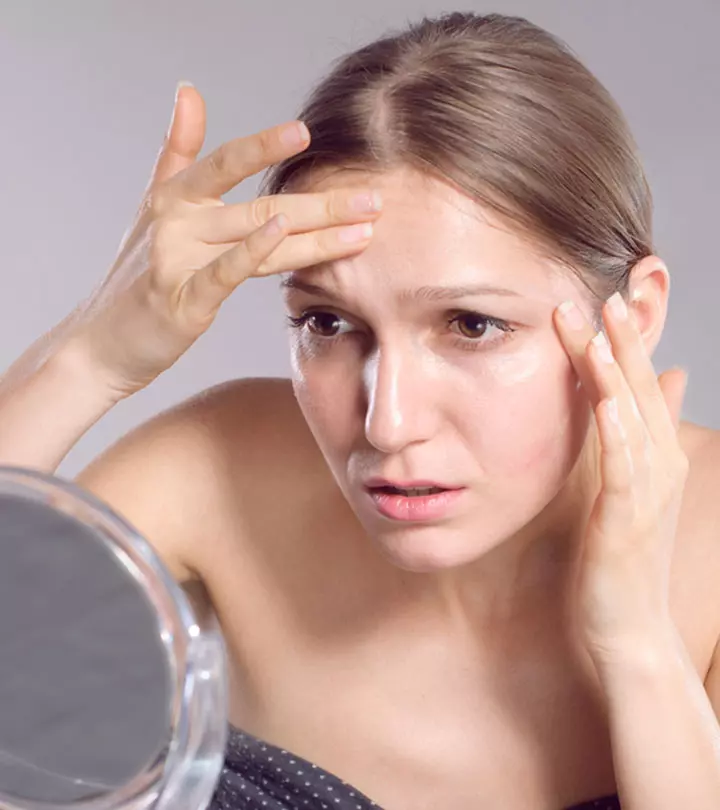
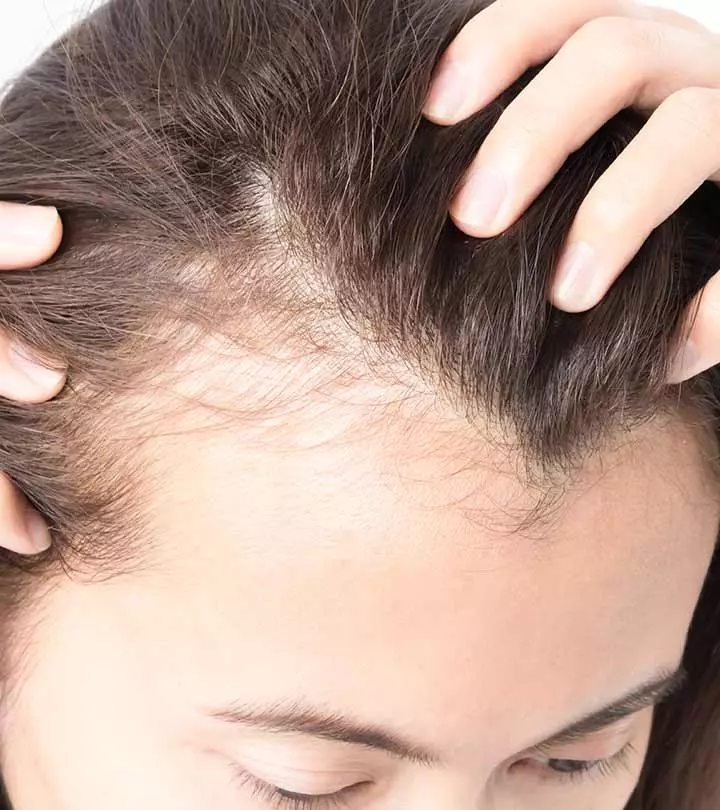
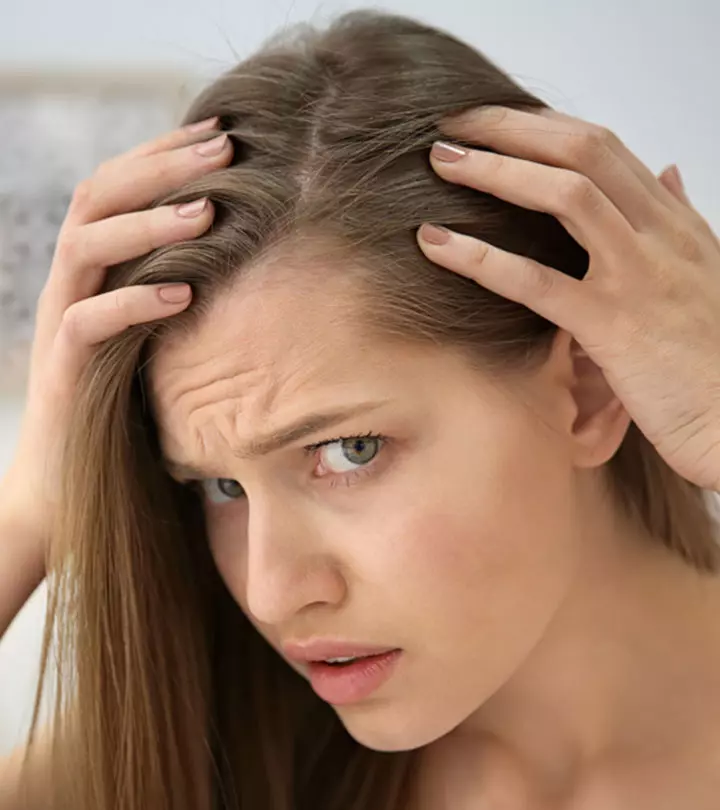

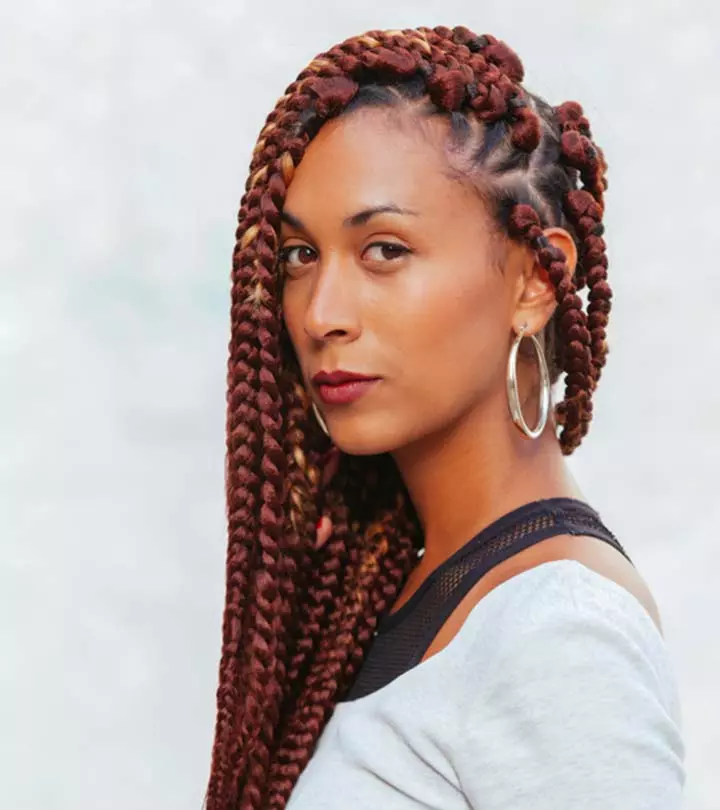
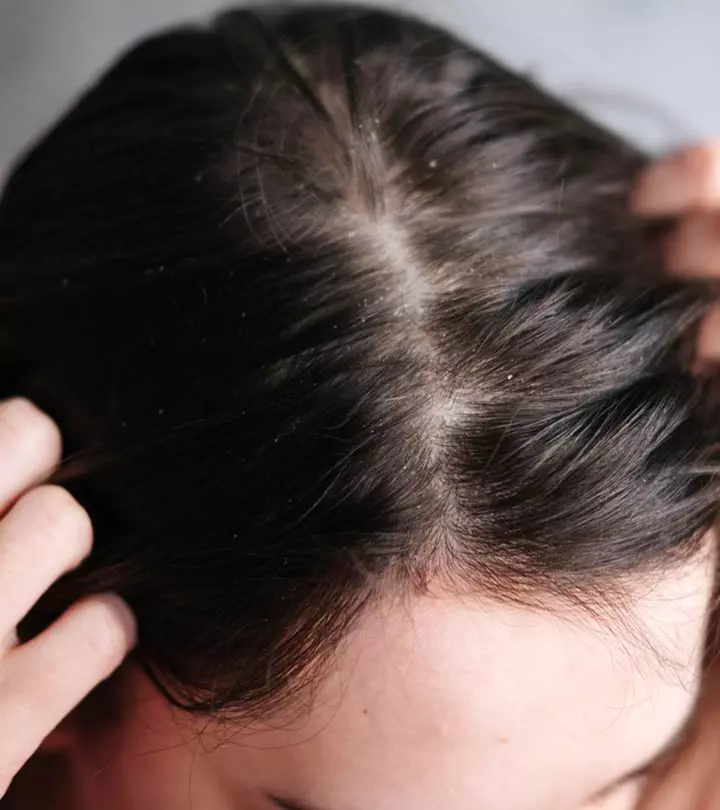
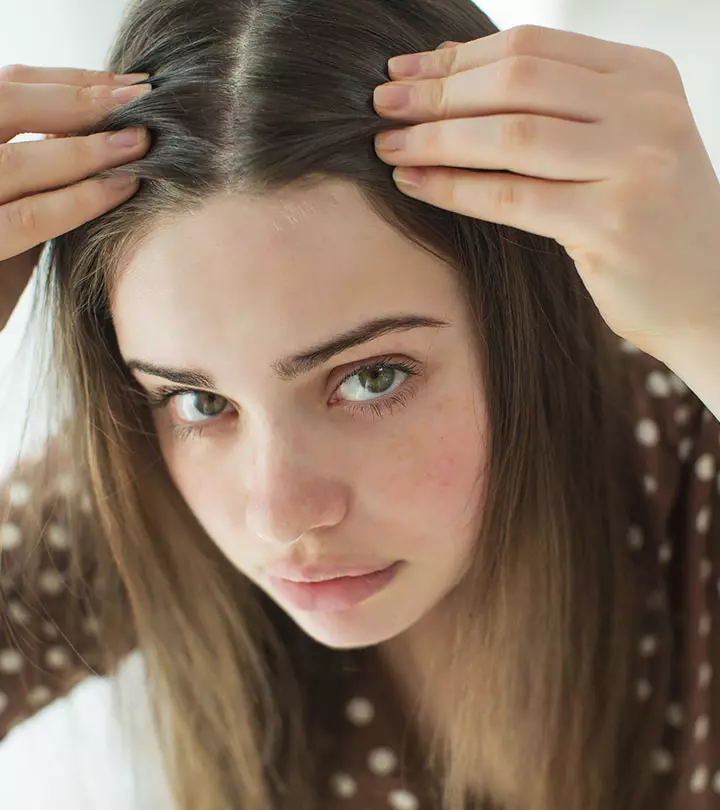
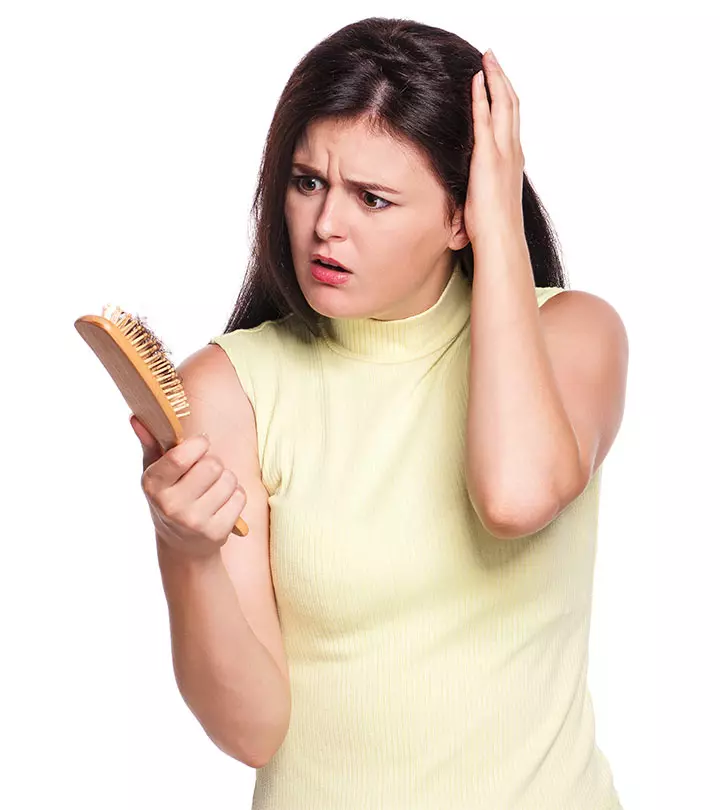

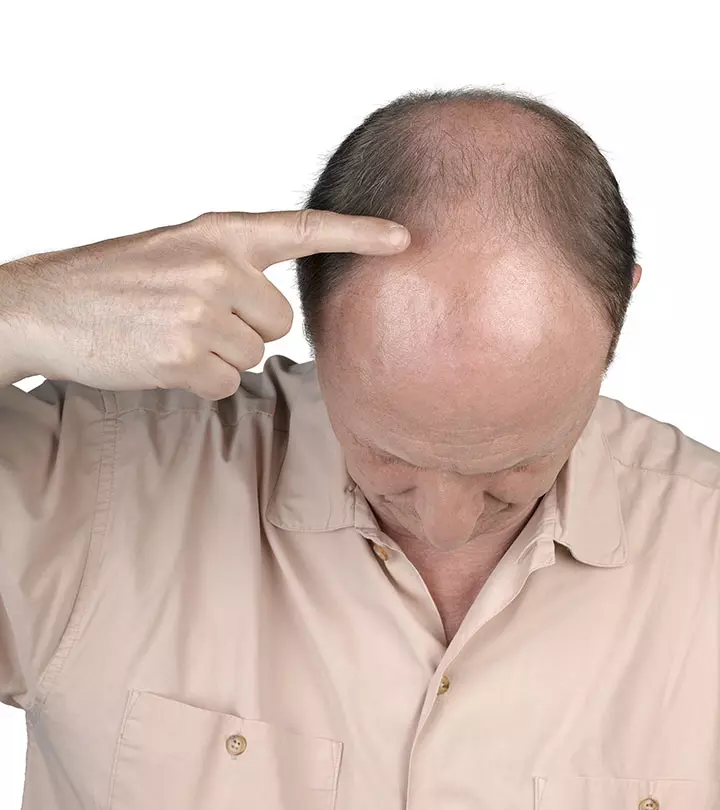
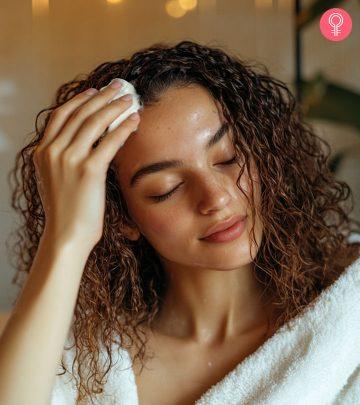
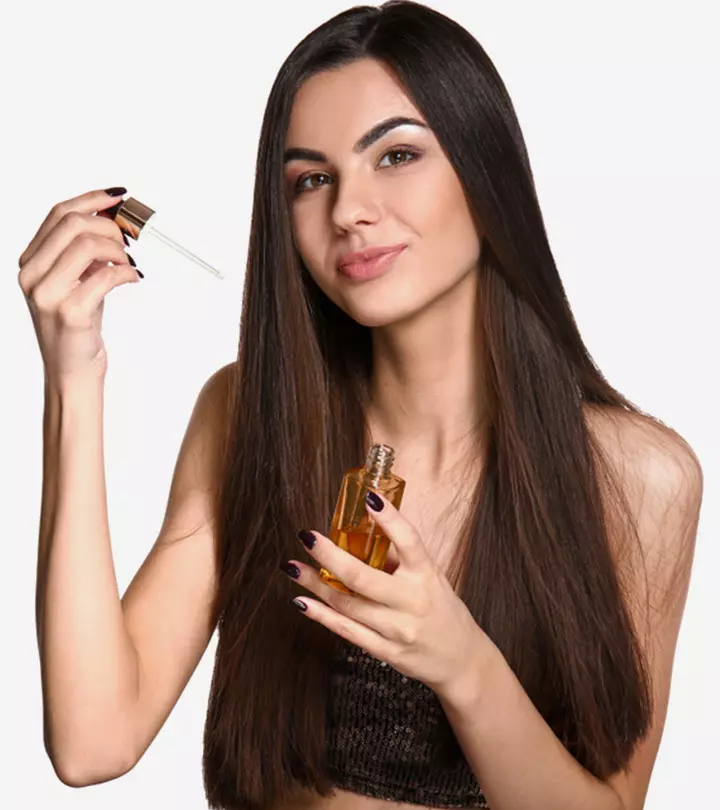
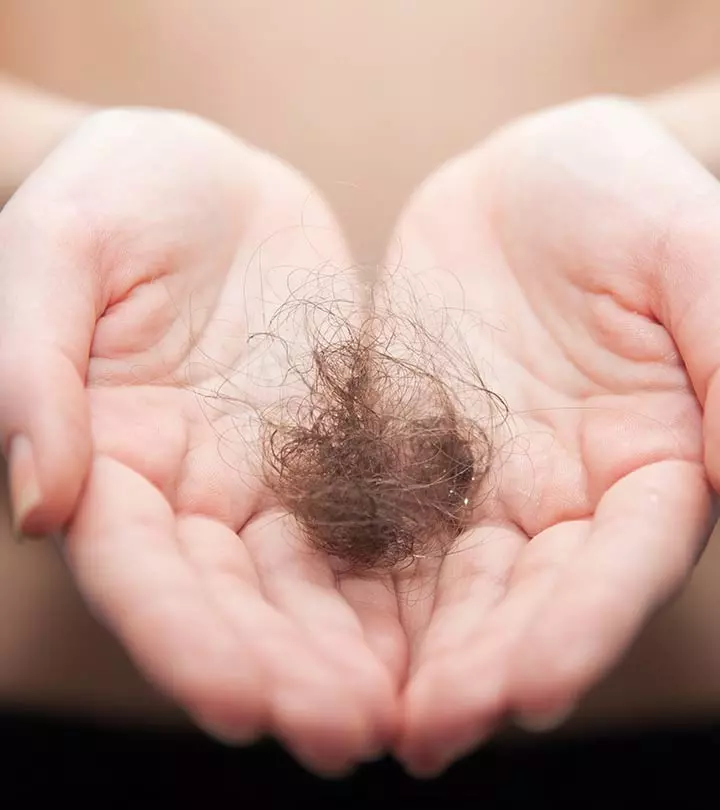
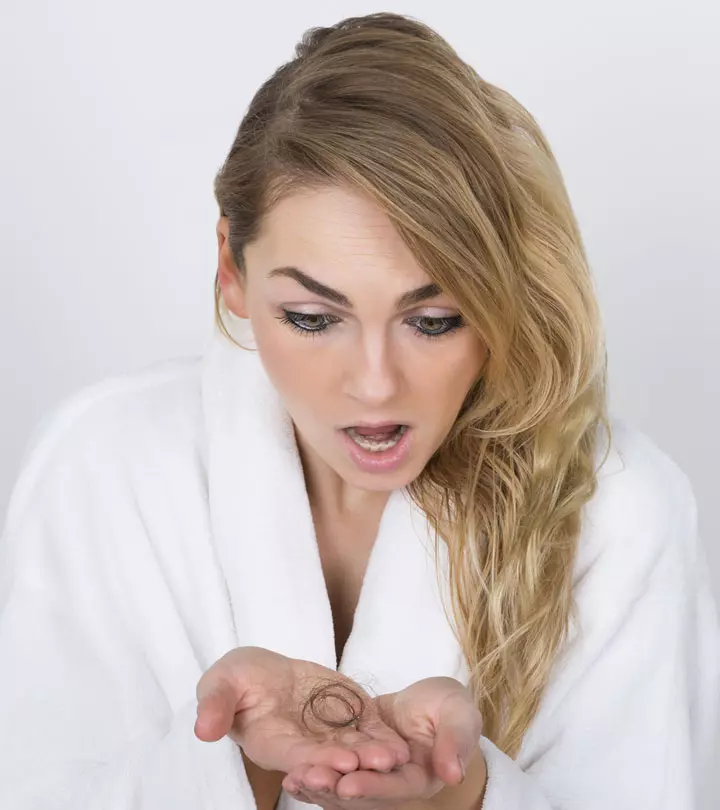
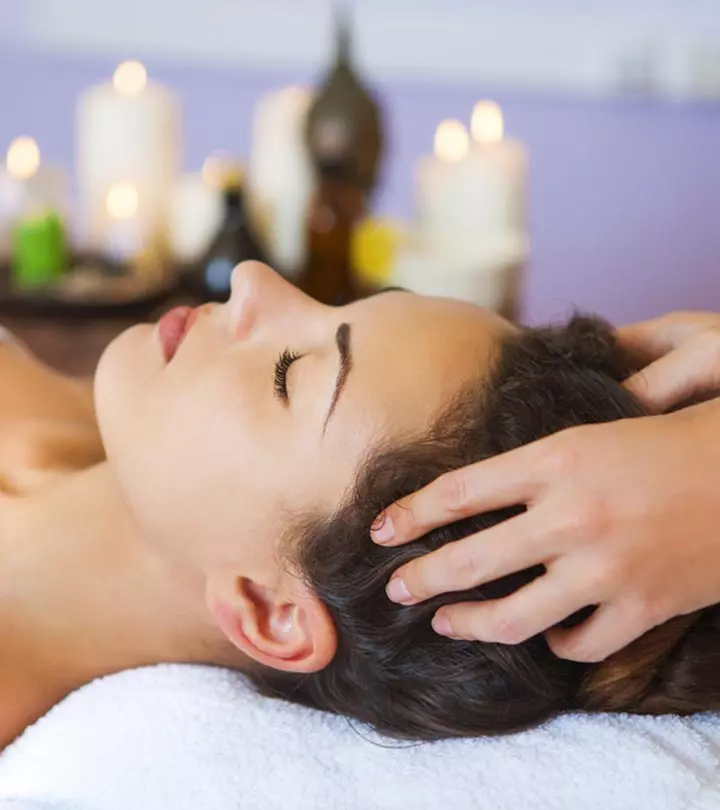
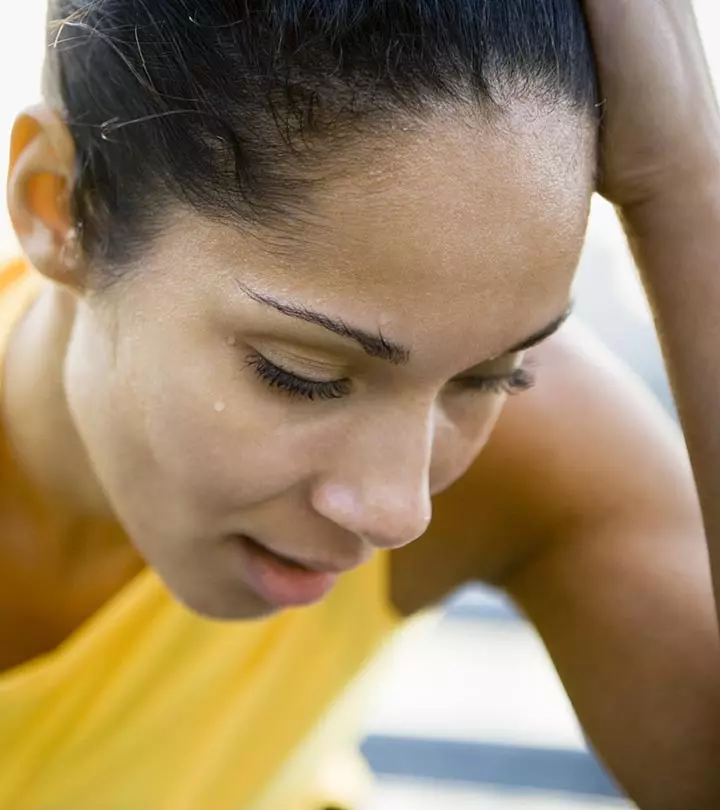
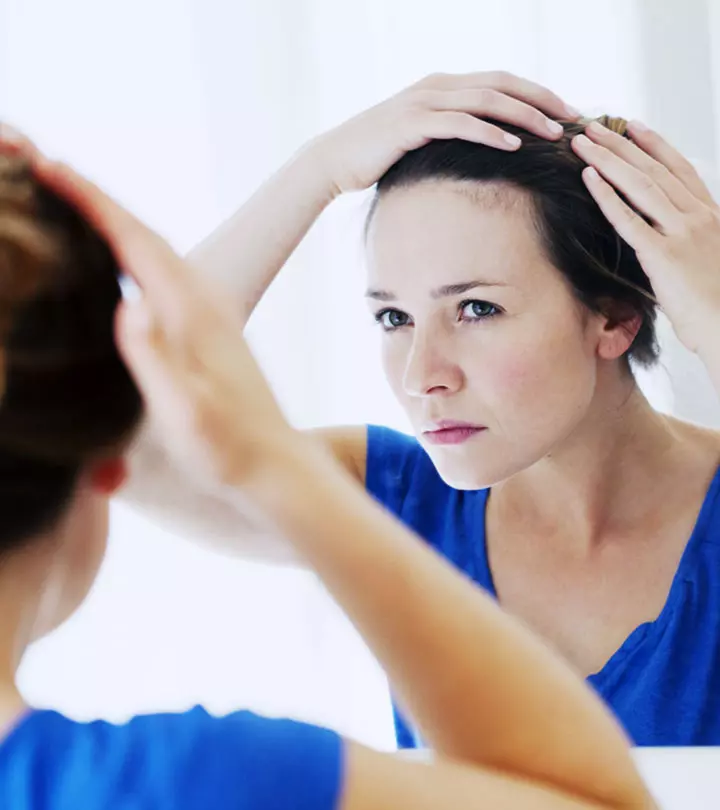
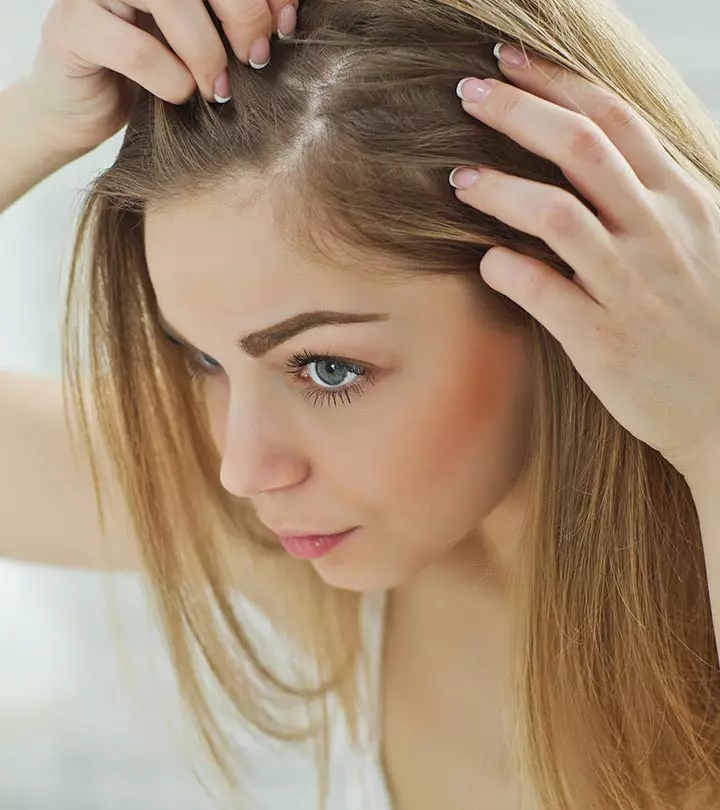
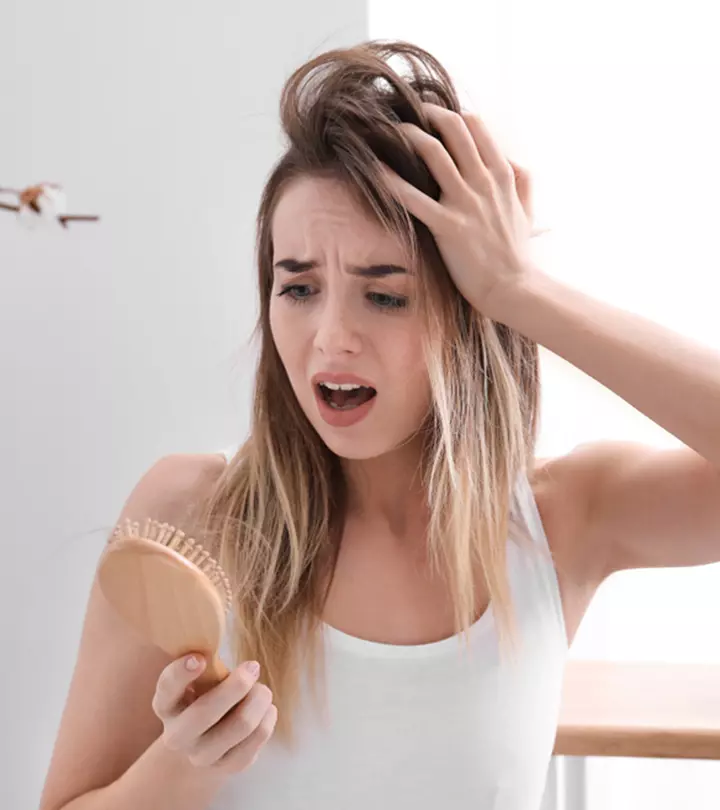
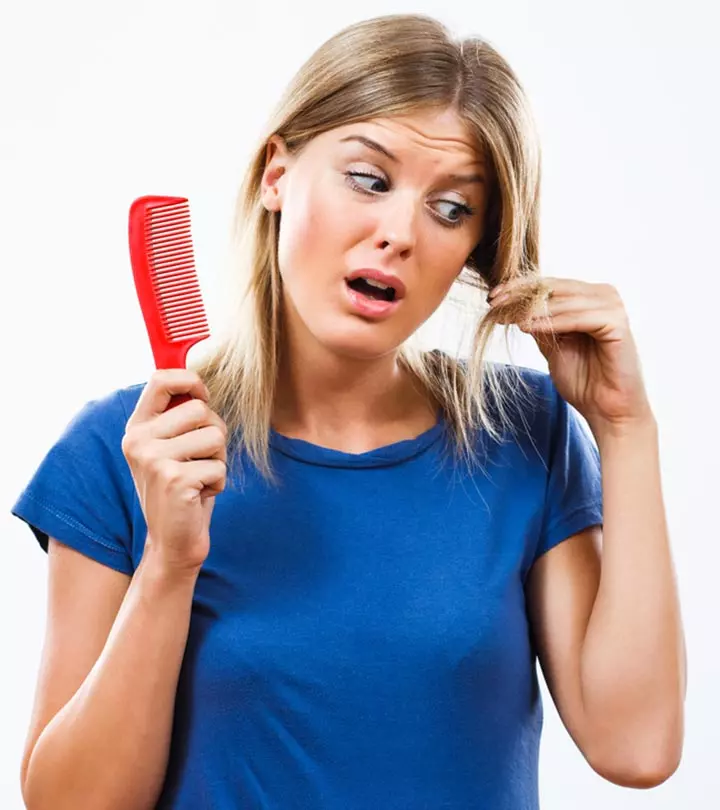

Community Experiences
Join the conversation and become a part of our empowering community! Share your stories, experiences, and insights to connect with other beauty, lifestyle, and health enthusiasts.